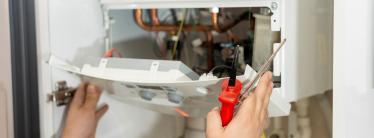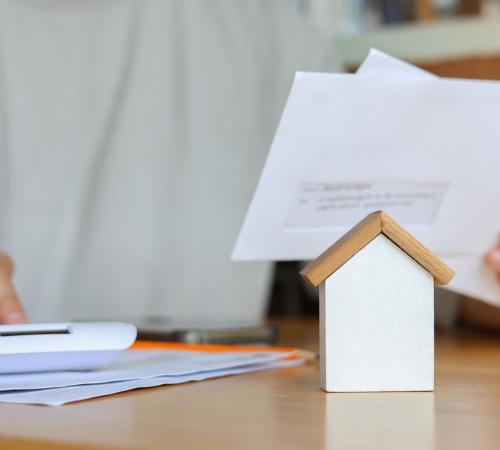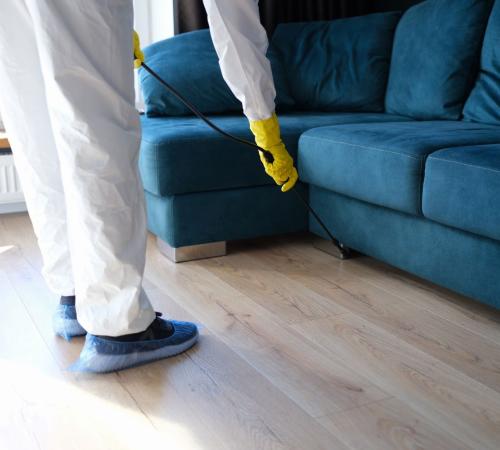

Failure to meet regulations can lead to serious hazards, such as electrical fires, alongside penalties and legal issues. Understanding the electrical safety regulations that you’re required to follow can help you comply.
Understanding electrical safety regulations
Landlords must follow certain electrical safety rules to keep their properties safe.
One key legislation is the Electrical Safety Standards in the Private Rented Sector (England) Regulations 2020 (external link).
It states that landlords must meet the electrical safety standards in the 18th edition of the ‘Wiring Regulations’ (external link).
This law requires landlords to:
- Have electrical installations inspected and tested by a qualified person at least every five years.
- Provide a copy of the electrical safety report to their tenants and, upon request, to the local authority.
- Complete any necessary repairs or further investigations within 28 days of the inspection.
These laws apply to all privately rented accommodations in England, including houses in multiple occupancy (HMOs) (external link), which may have additional requirements.
Rules may vary in Scotland (external link), Wales (external link), and Northern Ireland (external link).
Let’s delve into the specifics.
Conducting electrical inspections
Landlords must ensure that a qualified professional tests and inspects the electrical systems in their properties at least every five years.
Inspections can help identify issues early, ensuring everything is safe and working properly.
Electrical Installation Condition Report (EICR)
Landlords must get an EICR at least every five years or upon a change of tenancy.
An EICR is a detailed report that landlords need from a qualified electrician. It shows the condition of the property's electrical installations and highlights any issues that need fixing to meet safety standards.
GOV.UK (external link) outlines various resources offered by the electrical safety industry to help you find qualified testers and inspectors, including:
Upgrading electrical systems
Older systems are not necessarily unsafe, but they can be more likely to pose electrical hazards.1 (external link) Many recommend upgrading your electrical system every 25 to 30 years. While this isn’t legally required, it can help you remain compliant and even avoid potential fire hazards.2 (external link)
Recurring electrical issues like frequently tripped breakers or flickering lights might also suggest you need to upgrade.3 (external link)
Upgrading your rental property’s electrical systems can enhance tenant safety by reducing the risk of hazards like electrical fires.4 (external link)
Modern systems are typically more energy-efficient, which can lead to lower utility bills and a reduced carbon footprint. They can also boost property value, attracting tenants or buyers.5 (external link)
Upgrading your electrical system can even lower your landlords insurance premium.
Tenant safety and education
Landlords are advised to perform routine portable appliance testing (PAT) on any electrical appliances they provide as good practice and to give tenants a record of these inspections.6 (external link)
Landlords might consider directing tenants to reputable online resources, such as the Electrical Safety First website (external link), for electrical safety advice.
It is the tenant’s responsibility to:
- Report electrical issues promptly
- Permit access to the property for inspections and repairs
- Ensure their appliances are safe.7 (external link)
Legal and financial implications of not complying with electrical safety standards as a landlord
Ensuring compliance with electrical safety standards is not only crucial to providing a safe living environment for tenants, it’s also a legal obligation. Failure to comply can trigger financial penalties and legal action.
Under the Housing and Planning Act 2016 (external link), local housing authorities can impose financial penalties of up to £30,000, depending on the severity of the case.8 (external link)
You could also be held liable if a tenant is injured or killed due to an electrical issue on your property resulting from negligence.9 (external link)
Moreover, electrical faults can cause fires, which pose serious hazards and can cause extensive damage, leading to costly repairs.
Consequently, many insurance policies mandate compliance with electrical safety standards. Without regular inspections and maintenance, you might invalidate your coverage.
Record-keeping and documentation
Accurate record-keeping helps ensure that landlords comply with legal requirements.
Providing tenants with documentation of electrical inspections is not only a legal obligation but can also reassure them that their safety is a priority.
In the worst-case scenario of an incident or dispute, detailed records can show that the landlord has taken the necessary steps to maintain electrical safety, potentially protecting against legal action.
Disclaimer:
Managing rental properties is a complex business. At Hiscox, we want to see your investments thrive. Our articles offer insights into property management and landlord best practices. But these articles aren't professional advice. To find out more about a subject we cover here, please seek professional advice.
References
- https://www.sciencetimes.com/articles/46823/20231030/how-to-know-if-you-should-rewire-your-house.htm
- https://www.sciencetimes.com/articles/46823/20231030/how-to-know-if-you-should-rewire-your-house.htm
- https://www.slicelectrical.co.uk/blog/benefits-of-upgrading-your-electrical-system
- https://www.slicelectrical.co.uk/blog/benefits-of-upgrading-your-electrical-system
- https://www.sciencetimes.com/articles/46823/20231030/how-to-know-if-you-should-rewire-your-house.htm
- https://www.gov.uk/government/publications/electrical-safety-standards-in-the-private-rented-sector-guidance-for-landlords-tenants-and-local-authorities/guide-for-local-authorities-electrical-safety-standards-in-the-private-rented-sector
- https://www.electricalsafetyfirst.org.uk/guidance/advice-for-you/tenants/
- https://www.gov.uk/government/publications/electrical-safety-standards-in-the-private-rented-sector-guidance-for-landlords-tenants-and-local-authorities/guide-for-local-authorities-electrical-safety-standards-in-the-private-rented-sector#financial-penalti
- https://england.shelter.org.uk/professional_resources/legal/housing_conditions/responsibility_for_repairs/injury_or_damage_caused_by_negligence






